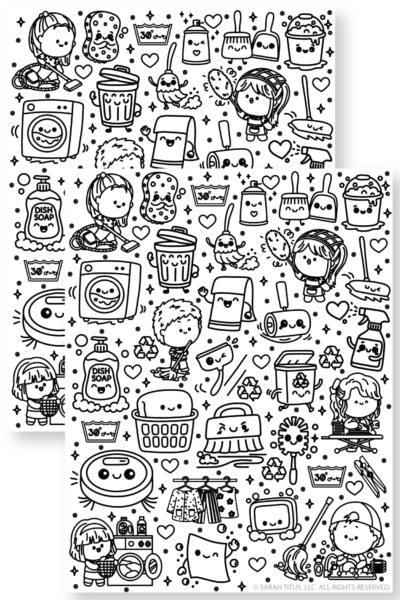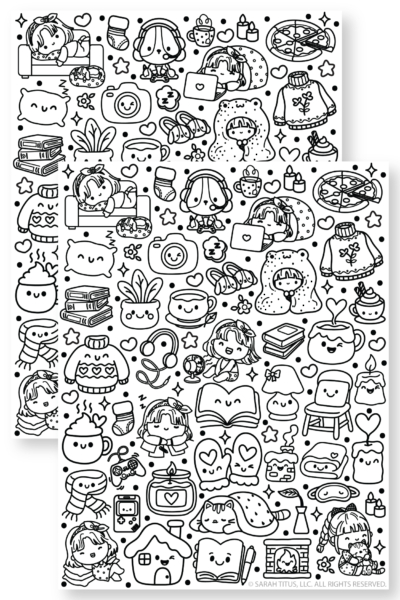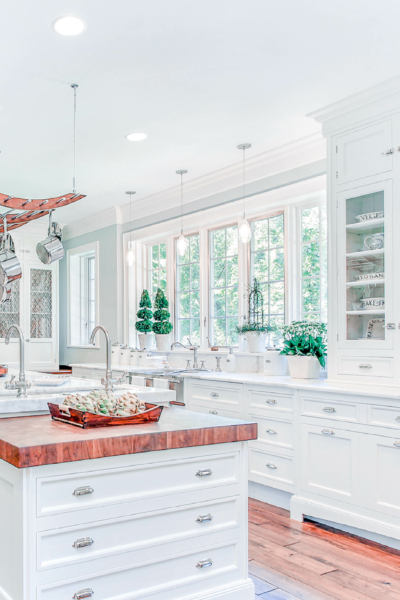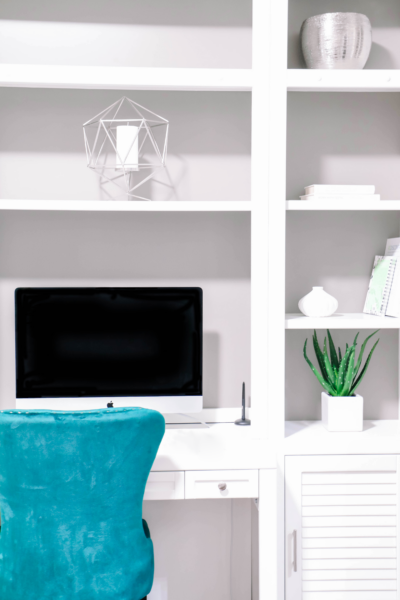Organizing can be a big task. Often, we stay unorganized because the thought of doing it is so over-whelming and we simply don’t know where to begin. Getting and staying organized requires a little effort, but if you are able to, it will make your home and life flow so much easier. To get you started, here are some organizing principles everyone needs to know.
Organizing Principles Everyone Needs to Know
It is an ongoing process
Staying organized is not something you can do one long day and it’s done. It is a process of keeping it up and not taking the easy way out. To keep organized, you must be willing to change your train of thought and go the extra mile. This doesn’t have to be hard; it just has to be managed properly.
By adopting a systematic approach to organization in your home, you’ll have it more put together in no time!
Related: Organizing your home can be so difficult. You have no idea where to start or how to organize your home in a way that makes sense. This organizing essentials guide is the perfect solution. With real life advice and organizing tips, hacks and ideas, this go-to guide covers almost everything you own! Get started now and say goodbye to clutter forever!
There is a place for everything
Most of us have drawers for storing “junk” and spots in our files that are just for various things. In order to stay organized, you must find a place for everything and remember not to use catch-all areas in your home. If you can’t find a spot for something, maybe it is time to consider if you need it to begin with.
The best way to begin to approach cluttered and messy areas (where nothing seems to have its own, more specific home) is to go one drawer or shelf at a time. Sort through each item and ask yourself if it’s really something that you need to keep. If it holds sentimental value, then place it in a box or bin with other memories for safe keeping. If, however, you’re hanging onto it because you may use it someday, perhaps it’s time to part with it. Recycling those old menus and magazines or donating items to a resale shop are good ways to get rid of your unnecessary items without throwing them away.
Once you’ve cleared out a single area, admire the work that you’ve done. Congratulating yourself on how great it looks will help motivate you to move onto the next cluttered area.
Don’t take in more than you get rid of
While most of us are not hoarders in the true sense of the word, we all collect things and don’t consider their value in our lives. Before you buy something new, consider if you really need it. The key to staying organized is to not have too much stuff to stay that way. This not only helps you be more organized, but it also saves you money!
If you find new items that you just can’t pass up, get yourself into the habit of replacing older items. When you bring a new book into your house, for example, get into the pattern of getting rid of an older one that’s been sitting on your bookshelf. The same habit can be developed for anything in your home: clothes, shoes, etc. However many you bring into your home, you need to throw away or donate the same number or more. This will help you to be certain that you aren’t filling your home with more things than you need.
Related: Organize Your Entire Life eBook and Planner
Keep lists and stock
In order to avoid clutter, it is imperative that we make lists and keep a running stock of what we already have. Doing so will help you avoid having duplicates, but it also helps you stay organized in your household tasks such as cleaning, meal planning, budgeting, and even events.
One easy step to take in keeping an inventory of what you have in your home is to label closet and pantry shelves with the items that belong on those shelves. By being organized with what goes where, you can do a quick-check before you go to the store to ensure that you’re only replacing those things that you’ve truly run out of.
Another way to help make sure that your shopping lists only reflect what you really need is to make a running list of all of those products that you use in your home…everything from furniture polish to staples like eggs and bread. Keep a spreadsheet on your computer and check them off when you need to replace them. That way, at shopping time you’re all set to print and head to the store. This will keep you organized both at home and as you head out to make new purchases, plus it will ensure that you don’t buy more of things that you forgot you already had.
Set Yourself up for Success
Making a few inexpensive purchases can help set you up for success as you organize your home.
One of the first things you’ll want to invest in is plastic bins (here’s a 12 pack of shoe box size plastic bins that I love to use in my home). Having items that can go into storage in a series of clearly-labeled bins will keep your treasured items safe, while keeping them organized. As you are finding places to put your memories, for example, limiting yourself to one or two bins will help you to make sure that you aren’t hanging on to unnecessary items while keeping those that you do choose to keep, safe from wear and tear.
Bins are also great for clothes that are out of season, toys that you’re saving for when the kids get older…and much more. By getting yourself into the habit of putting items into bins as soon as you are done with them, you’ll be one step closer to an organized home.
Next, buy some binders (here’s a nice set of 4 – 1″ binders). Binders with sheet protectors can be great for organizing those important documents that need to be kept safe. Rather than placing your important papers in a folder or a drawer (where they’ll be hard to find quickly), organize them by type of document in your binders. One idea is to have a binder for home information and another for things relating to your family. Once your binder are organized, they can be placed on a shelf for quick reference when you need that particular documentation.
Another good purchase is a set of rolling drawers. These drawers can be great for bills and old paperwork that you need to hang onto (but don’t need easy access to). Label each drawer with its contents and then fill it with the things that you need to keep. Make sure, however, that you go through your drawers on a regular basis to get rid of those things that you don’t need to have any longer.
If organizing paperwork is a problem area for you, I’ve written a great step-by-step post on how to get it (and keep it!) organized. You can find the post here.
Don’t Stock Up
The idea of not stocking up on sale items goes against lots of couponing principles….but it will save you money in the long run. Buying 3 bottles of contact solution and 5 tubes of toothpaste because they are a good deal may seem to make sense, but retailers know this and purposely try to get you to do this, knowing you’ll probably never use it all up before it expires. When you have to throw away your items (and your money) because they expire before you use them, it’s not really worth it. Buying only what you need, not only saves you money…it also leaves your house less cluttered!
If you do find sales on things that won’t expire, such as toilet paper, paper towels, tissues, etc., allow yourself to take advantage of the savings…but only if you have a place to store it and never purchase more than you’d use up in a years’ time. If you have a shelf in your garage, under your bed, or closet alternatives designated for extras, then go ahead and make the purchase. Make sure that you don’t buy too much, or you’ll end up with items that don’t fit on your shelves…making for more clutter and frustration.
Spend Just 10 Minutes a Day Decluttering
Organizing is often a lot less overwhelming if you stick to just 10 minutes a day. As mentioned, focus on just ONE area at a time. An example is clean out one drawer for 10 minutes. If you get done faster, that’s great, move on to something else. If you don’t get it done, no big deal, work on it again tomorrow for 10 minutes. Often times, what I find, is that by breaking things down by a small task at a time with a small time limit, it helps me stay motivated for a longer period of time and I can get my whole house organized using this method.
Take time each day to re-organize
You don’t have to spend hours doing it. Just be consistent. Every day put things back where they belong, look over lists, pick things up, and make goals for the next day. When you do this, you will find that you stay organized much easier as you are developing a new habit and there are no more entire days devoted to reorganizing your things and your life. You have set a habit of taking just a few minutes a day to accomplish everything you need to.
Learn to say “No”
This is something that I greatly struggle with but highly organized people don’t overbook themselves. They take on only what they can handle and even leave time for leisure. Sometimes this means saying “no” to others when you are invited somewhere or even saying “no” to trying to do too much in one day. Give yourself grace in this area. You are not perfect and you simply can’t be everything to everyone.
One great way to figure out the things that you can say “yes” to and those that you can skip, is to look at the things that are most important to you. When days are full and you just don’t know how you’ll fit it all in, think about those things that absolutely must get done in the day. Each other task or request that comes your way for that day can be fit in, if you have the time. Think about what really must get done and do those first. Think of the others as nice additions to your day, if you find the time. If not, at the end of the day you still will have accomplished all that you needed to do.
This plan of action has really helped me become a lot more organized with my time this year and helps me feel like I’m accomplishing a lot more as well. In fact, I went from spending 80+ hours a week blogging to 40 hours a week. A huge improvement I would say!
Make deadlines for yourself
If you find that you are spending too much time on things and not getting everything done in the one day that you hoped to, make personal deadlines for the time you will spend. You will not only feel motivated, but you won’t leave yourself feeling like a failure. Most tasks that we give ourselves don’t have to be done in one day and can be spread out. It’s okay to do this form of procrastination as long as you have an end goal that you are working towards and contently stay on track. Don’t strive for perfection; strive to meet goals and be willing to be flexible in them.
If you don’t know where to begin, make a calendar of what tasks you will work to achieve each day. Remember, taking small steps is okay. Maybe on Monday you will work on how to organize your kitchen and take on the junk drawer in there, Tuesday the pantry, and Wednesday the hall closet. Setting small goals for yourself, will make them easier to achieve.
Develop New Habits
Once you have your home more organized, don’t lose sight of how hard you worked to get it there. Being organized isn’t a job that takes a week and you’re done. Once you’ve overcome the initial need to get things in order, you have to train yourself to keep them that way.
Take time each day to get yourself organized. You don’t have to spend hours doing it; just be consistent. Every day, put things back where they belong, look over lists, pick things up, and make goals for the next day. When you do this, you will find that you stay organized much easier as you are developing a new habit and there are no more entire days devoted to reorganizing your things and your life. You have set a habit of taking just a few minutes a day to accomplish everything you need to.
In the same way, your kids will see this habit and as they grow older, may want to mimic that behavior. Especially in younger children who want to copy EVERYTHING we do. Use YOUR new-found habits for good!
Example, when you bring mail or papers inside your home, know where they are going to go. Don’t set them on the counter or another place where they will stack up and need greater attention later. Simply put them where they belong immediately or don’t bring them in at all. It will make for less work later.
Another great example is when you have clean laundry, put it away as soon as it has been folded. Don’t allow it to sit on the couch until you have time to put it away later. Getting yourself into the habit of putting it away immediately will make it less overwhelming later.
Perhaps the most difficult part of changing habits is helping your family to do the same. Once you’ve developed new systems and places for things to go, you must recruit your family to help you. Without their buy-in, you will likely find stacks of things where you’ve worked to get organized or a drawer-full of junk where you’ve worked so hard. Getting them on board with a more organized home will make for a much happier you!
Give yourself grace
The truth is that no matter how hard you try, you will never fully accomplish everything you set out to do. So often we hold ourselves to unrealistic expectations and get frustrated when we can’t meet them. Don’t beat yourself up if your house is not organized within a week. Just keep plugging away every day. The point of change is not to be perfect, but to get better each day. By setting daily goals and working to achieve them, you’ll be taking steps forward…even if they are baby steps. Today, were you better than you were yesterday? Did you do a better job today than yesterday? If you said yes, you’re succeeding!
Getting organized doesn’t have to be a daunting, overwhelming task. By getting your plan together and putting it into action, through small daily steps, your home will be more organized before you know it!













